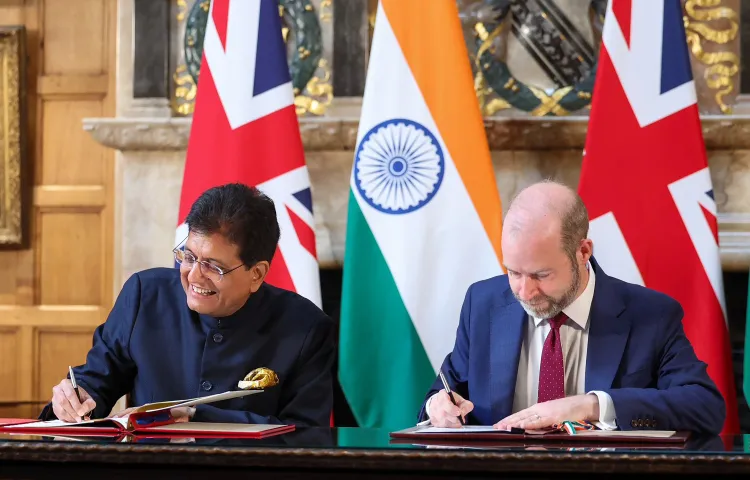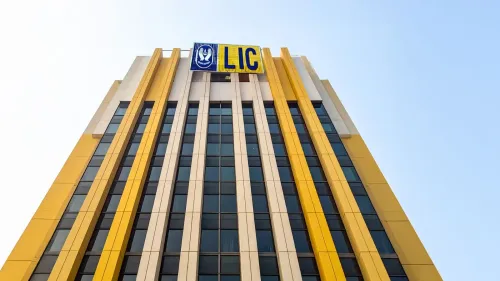Is the India-UK Trade Agreement a Game-Changer for Labour, MSMEs, and Startups?

Synopsis
Key Takeaways
- Duty-free access for 99% of Indian exports to the UK.
- Significant opportunities for labour-intensive industries like textiles and agriculture.
- Boosts for Indian startups through access to UK investors.
- Enhances the economic landscape for women artisans and workers.
- Improved access to UK markets for the services sector.
London, July 24 (NationPress) In a significant advancement for India's aspirations in global trade, Union Commerce and Industry Minister Piyush Goyal on Thursday described the India-UK Comprehensive Economic and Trade Agreement (CETA) as a ‘historic leap’ that will enable workers, farmers, MSMEs, and startups throughout the nation.
Extending congratulations to Prime Minister Narendra Modi, UK Prime Minister Keir Starmer, and the citizens of both countries, Goyal remarked that the agreement provides duty-free access for 99 percent of Indian exports to the UK — unveiling nearly $23 billion in new opportunities, particularly beneficial for labour-intensive sectors.
Signed in the company of both Prime Ministers, this agreement signifies a new phase in India's trade ties with developed countries.
The agreement was finalized by Goyal and UK Secretary of State for Business and Trade Jonathan Reynolds following earlier negotiations this year.
“This deal will revolutionize the livelihoods of artisans, weavers, and daily wage earners in industries such as textiles, leather, footwear, gems and jewellery, toys, and marine products,” Goyal mentioned in a statement on social media platform X.
“From village looms to tech labs, this FTA enhances women’s financial access and fosters deeper global integration,” he added.
Agriculture emerges as another significant beneficiary of this agreement, with almost 95 percent of Indian agricultural products receiving duty-free access to the UK.
Fisherfolk will also gain from zero duty on 99 percent of marine exports. Goyal emphasized that the agreement promotes inclusive and gender-equitable growth, contributing to a more resilient economy from the grassroots level.
In addition to traditional sectors, the pact is anticipated to elevate engineering goods, electronics, pharmaceuticals, chemicals, plastics, and food processing industries — all of which are vital to India's manufacturing future. It will also make premium UK products more affordable for Indian consumers.
The services sector, a powerhouse of India's economy, is poised to benefit from improved access to UK markets in IT, finance, education, and legal services.
Simplified visa regulations and liberal entry criteria will facilitate the entry of Indian chefs, yoga instructors, musicians, business visitors, and professionals across various sectors.
A notable feature is the Double Contribution Convention, which exempts Indian professionals and their employers from paying social security contributions in the UK for three years.
Goyal termed it a “significant breakthrough” that enhances the cost-effectiveness of Indian talent abroad.
The agreement also paves the way for Indian startups to connect with UK investors and innovation centers, thereby broadening their global presence.
According to Goyal, CETA represents a “win-win” for key government initiatives like ‘Make in India’ and ‘Vocal for Local,’ as it fosters job creation and enhances India’s strategic standing in global trade.









